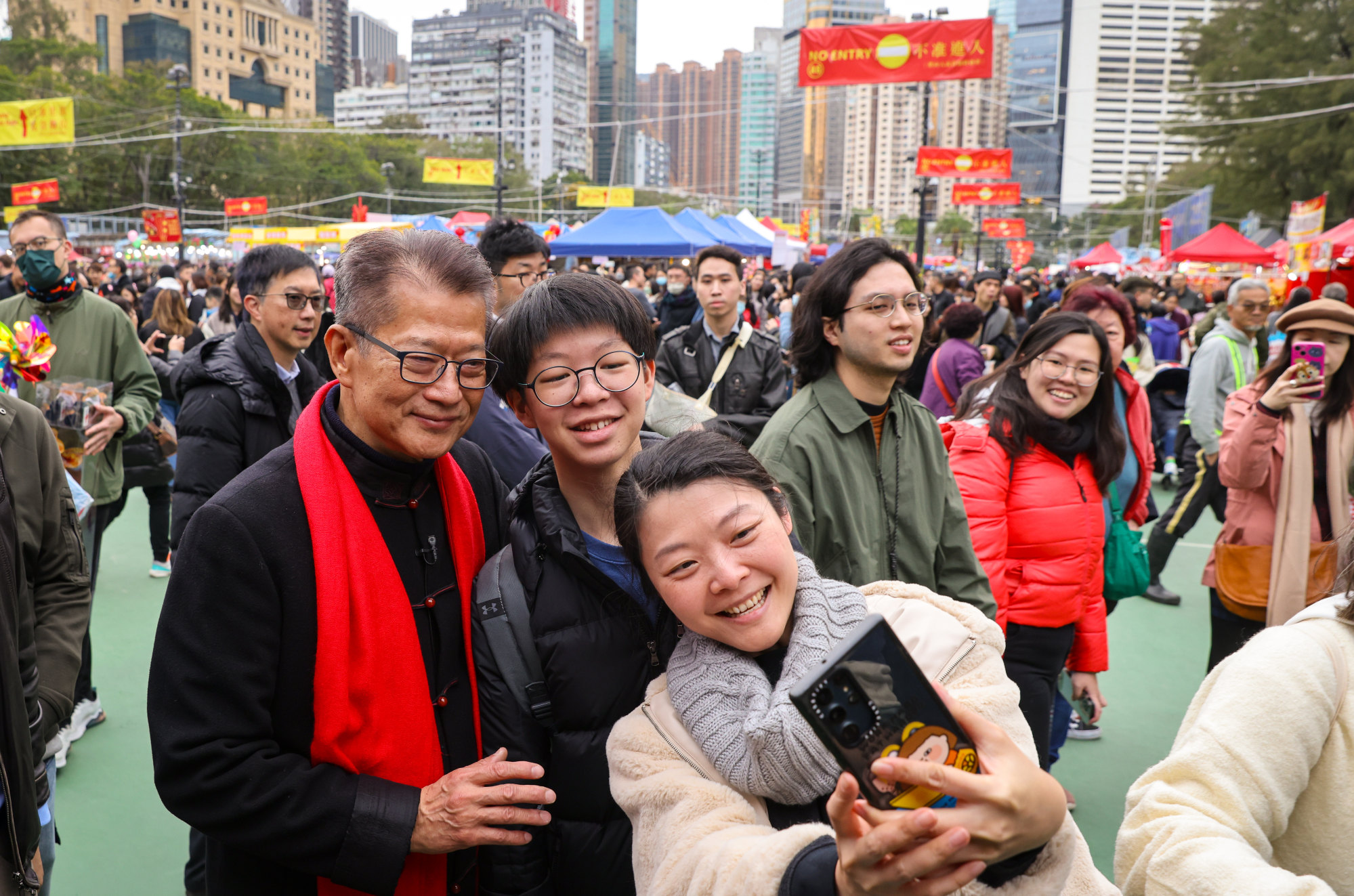
Most Hongkongers think perks such as consumption vouchers unnecessary in coming budget, finance chief says
- Financial Secretary Paul Chan also predicts economy will be more stable this year owing to falling interest rates
- Chan says government spent ‘a lot of money’ during the pandemic, with city’s deficit reaching about HK$100 billion in the current financial year
“For this year’s budget, if you are talking about large-scale easing measures like in previous years, most of the opinions we collected during our consultation period indicated that we should not introduce them again, they are not necessary,” Chan told a radio programme on Sunday.
“The economy may be recovering at a slower pace, but it is still positive growth. We also have to think about the government’s ability to afford these measures financially.”

Chan said authorities had spent “a lot of money” during the pandemic and the city’s deficit had ballooned to about HK$100 billion (US$12.8 billion) in the current financial year, despite an earlier estimate of around HK$50 billion, as government revenue from land sales and stamp duties fell because of a weak assets market.
He added that the government would reduce spending and increase revenue, with efforts to raise public service fees taking into consideration the financial circumstances of residents and the city’s competitiveness.
But the finance chief said he expected the local and global economy to become more stable compared with the previous year, given interest rates had stabilised and might fall later in the year.
“Of course, there are still large variables like geopolitics overseas and the United States’ economic environment, but overall we hope that with interest rates starting to come down, no matter in the asset market or our exports, it will be relatively more stable,” he said.
But the city would have to rely on local consumption and tourism in the short term, as exports still faced pressure, Chan added.
“Hong Kong is a service-based economy, so consumption will drive related services and employment,” he said.
“Once the market is doing well, the consumption situation is good and everyone is doing business and making money, especially if the entire social atmosphere is made more vibrant and happier as spending increases, then investments will also improve, so this is an important area for us in the short term.”
Chan said the city would have to improve the quality of its services and experiences for tourists to encourage them to return to Hong Kong and recommend it as a destination for others to visit.
The finance chief said the city had reached 70 per cent of the pre-pandemic number of tourist arrivals in January, with more expected to visit the city as flight capacity improved.

But a trend towards city residents crossing the border for leisure could affect the city’s economic prospects.
The latest Immigration Department statistics showed the number of residents who left Hong Kong on the second day of Lunar New Year was higher than the number of visitors who entered the city.
Hong Kong logged 233,043 people who had entered the city by Sunday at 4pm, more than 168,000 of whom were visitors, almost 75 per cent of the total.
More than 300,000, 84 per cent of the people who left the city, were residents.
Bill Tang Ka-piu, a Federation of Trade Unions lawmaker, on Sunday urged the government to continue to distribute consumption vouchers to the public and added that authorities could consider limiting their use to weekends.
“It will allow residents to be happy when they use consumption vouchers, which will not only include them feeling happy when spending money, but also when they stay in Hong Kong to spend money on Saturday and Sunday with their family,” he said.
Tang, who joined other members of the federation to make suggestions for this month’s budget, also recommended authorities should distribute vouchers to tourists to help boost consumption.
But Sze Lai-shan, deputy director of the Society for Community Organisation, said she did not agree with authorities distributing consumption vouchers to all residents because it would not help low-income residents much.
Sze instead suggested the government should take a more targeted approach towards assisting the poor in light of the budget deficit, such as giving people on lower incomes a HK$5,000 (US$639) cash handout, or have authorities focus their efforts on boosting the economy so the entire community could benefit from economic development.
Chan, asked whether the government would consider removing property market curbs, said the measures were introduced when there were “objective reasons” for them, but added the authorities would continue to monitor the situation.
The financial secretary also said the government would handle the property market with care as many residents had invested most of their savings in their homes.
There could be instances because of the market’s present state where property might fall into negative equity if housing prices fluctuated, he added.

